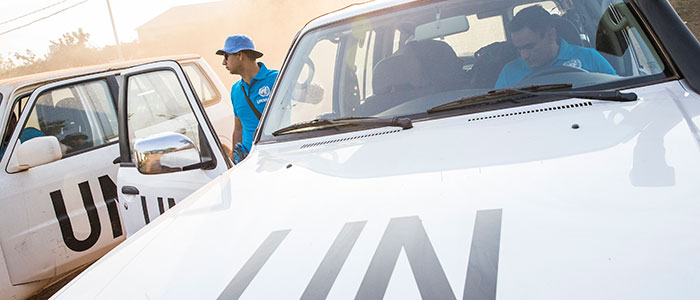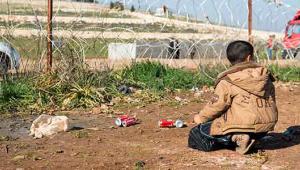UN car convoy aid delivery.jpg

UN vehicles
Donors and aid agencies signed up to the deal, billed as a crucial element in remaking an aid system that can cope with today’s increasingly frequent and severe crises.
It will see donors commit to providing more, longer-term funding and less earmarking, in exchange for greater efficiency and transparency from aid agencies in the way those funds are spent.
Peter Maurer, president of the International Committee of the Red Cross, said: “The Grand Bargain is not a panacea for all the problems in the humanitarian ecosystem, but it will help make sure money is put to optimal use and, crucially, help to raise new funds.”
He noted that the provision of un-earmarked funds and the imposition of fewer restrictions will allow humanitarians to better work in conflict zones outside of the media spotlight, for which little designated funding is received.
Elhadj As Sy, secretary general of the International Federation of Red Cross and Red Crescent Societies, added that the deal would also support better responses to needs on the ground by channelling funds to local organisations.
The deal includes a commitment to deliver at least 25% of humanitarian funding to local and national responders, which currently receive only around 1% despite being the best placed to act and taking the largest risks.
Another celebrated aspect of the bargain entails scaling up cash-based humanitarian assistance, which has been shown to be more efficient, empowering and effective at meeting needs.
Currently, only 6% of all humanitarian aid is provided through cash, with the rest constituted of in-kind aid.
A number of other developments have been welcomed, including the launch of a fund to ensure access to education in crisis situations and coalitions to increase resilience and preparedness.
Sara Pantuliano, managing director at the UK’s Overseas Development Institute, noted further announcements, including the creation of aid networks and private sector partnerships.
However she said the summit had “fallen short in substance and ambition” and closed with little clarity on how pledges will be turned into a reality.
“With all the talk about putting people at the centre of humanitarian action, there has been little to suggest the main players will put aside their institutional interests for those of people struggling in crises to survive.”
Pantuliano was the author of a report released by the ODI in the run up to the summit, which argued the western-dominated aid system needed to make room for smaller, local and specialised organisations.
Commentators have also observed that, as feared, the summit had achieved little on strengthening international humanitarian law (IHL) – one of its key aims.
Following the summit, Winnie Byanyima, executive director of Oxfam International noted that despite the WHS’s successes, world leaders had “dodged their responsibility to protect civilians” and “paid only lip service” to accountability on issues like IHL.
“The 40 or so world leaders who did attend were overshadowed by conspicuous absences, itself revealing the lack of global political will to make the necessary changes for the people who need them most,” she said.
United Nations secretary general Ban Ki-Moon, who initiated the summit, has also criticised world leaders who failed to attend. No G7 heads of state apart from Germany’s Angela Merkel were there.













